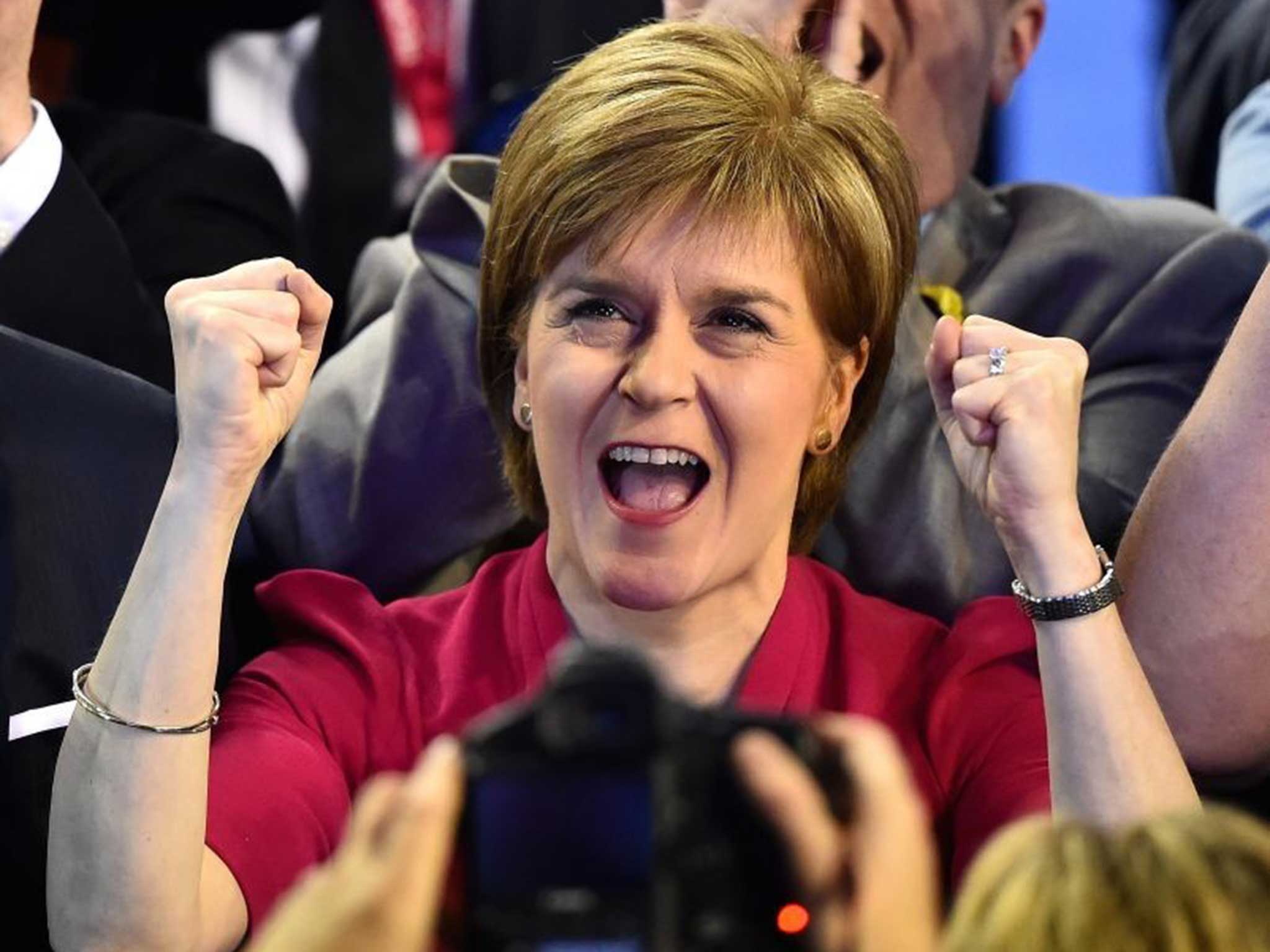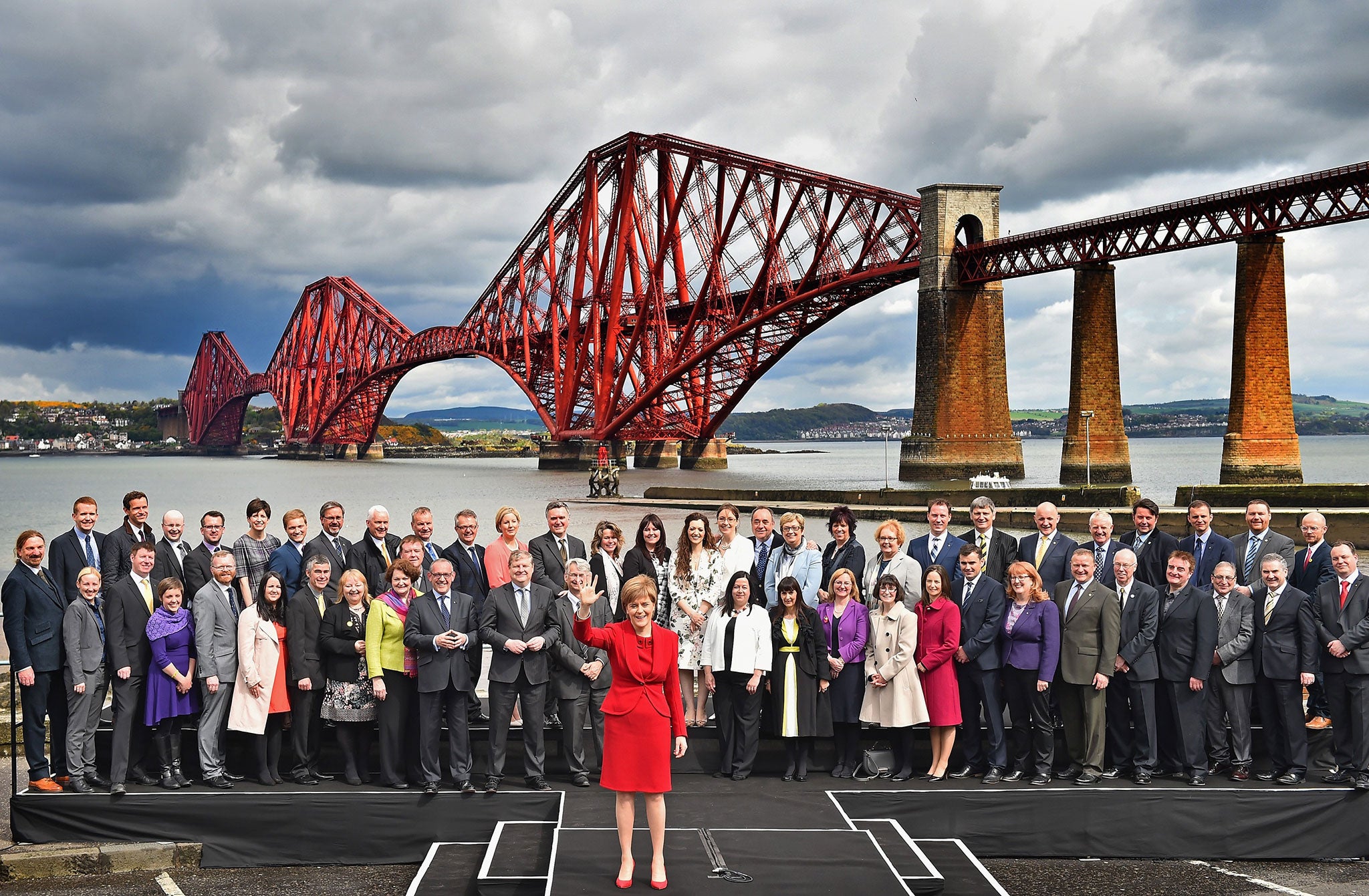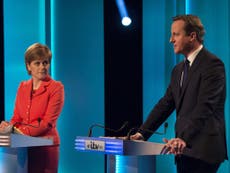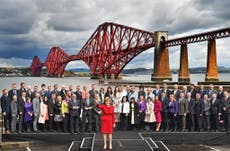Nicola Sturgeon faces tricky balancing act following David Cameron's surprise election victory
Her stated aim is achieving Scottish independence, yet working with the PM risks the anti-Tory unity of her supporters

Imagine you are my former colleague Sue Inglish, the BBC’s head of political programmes. At 9.30pm on Thursday, psephological guru John Curtice is handing you the final findings of the general election exit poll. The methodology is sophisticated now, and, though the scars of the 1992 debacles will never fade, every exit poll since then has been spot on.
Trouble is, this one tells an astonishing story that no one has anticipated: far from the Tories and Labour being level pegging as virtually every opinion poll has suggested, David Cameron is on course to win handsomely. If ever there was an outlier, this is it. You have a few minutes to decide. To be wrong would be a calamity. Publish or not?
Seconds after 10pm, David Dimbleby is delivering this shocking news to a disbelieving audience. But even as the early results trickle in, it becomes clear the findings are robust.
As well as a surprise Conservative victory, the exit poll indicates that the SNP is on course to win an incredible 58 out of 59 seats north of the border. Scotland as North Korea? Not quite, it turns out.
Scotland is today a multi-party state. Labour, the Lib Dems, the Tories and the SNP are represented. It’s just that three of them have a single seat each, while Nicola Sturgeon’s lot have 56.
Big victories for the Conservatives south of the border and a virtual clean sweep for the SNP north of it have decapitated Ed Miliband. So what happens with Scotland now?
Sturgeon’s strategy was clear if Labour hit 270 seats. The SNP would have joined Miliband in locking the Tories out of power, and would have then run rings round him as he sought to run a minority government without any formal deal.
Some nationalists maintain the SNP can better advance independence in this unexpected landscape, up against Cameron. With just one Tory MP in Scotland, the potential to point to the democratic deficit, to foster victimhood, is a potent weapon.
True, Thursday’s results may signify that the break-up of the Union is unstoppable. Scotland and England have never felt more different – anyone who spends time in both places can taste it. Scots voted for anti-austerity and their southern cousins for fiscal rectitude. How, for example, can a UK-wide Labour Party ever satisfactorily address those diverging priorities?

But Cameron’s victory makes life more complicated for Sturgeon, and requires careful thinking. What if Cameron really does find his One Nation approach after the mean-spirited, pragmatic and often outrageous approach to Scotland during the campaign? Does Sturgeon work with him to bank further devolution, making the starting point for the next independence battle that bit further down the line? Or does that risk the simple but powerful anti-Tory unity of her supporters?
Worse, what if he made an open-hearted, ambitious gesture – some might instead characterise it as calling Sturgeon’s bluff – and offered full fiscal autonomy? Sturgeon professes to want it, but knows the problem. To give Scotland control over all taxation means the withdrawal of the Barnett formula. According to the Institute for Fiscal Studies, that would leave the Scottish government with a £7.6bn hole in its budget. Talk about a poisoned chalice.
Cameron’s victory also forces Sturgeon to confront too early when a second Scottish independence referendum might come. That is because she can see the upside for the prospects of Scottish independence in his in-out EU referendum. If, say, England were to vote to leave, but Scotland – as is likely – wanted to stay, she can see that this might be the impetus for enough previous opponents of Scottish independence to switch sides.
Sturgeon’s approach to a second Scottish independence referendum is to keep all options open. It moved from being a once-in-a-generation event last September to becoming a choice made once in a political generation. Now? Her rhetoric is that it will be the people who decide when the question comes back. Which means anything, really.
But she is in no hurry. Thursday’s result included many of last September’s No voters, keen to put lead in a Labour government’s pencil, rather than back the break-up of the UK. She knows there is still a majority against independence. Picking the moment is all. She will only do so when convinced of success, having done all she can to create the most conducive circumstances.
This is a difficult balancing act. She heard the boos at the STV leaders’ debate when she publicly mused about the circumstances of a second vote – a rare mistake. But she also has an army of new members to keep happy. The party has grown fourfold since the referendum, and now has more than 100,000 members, or one in 50 Scots. A second vote is what they demand.
Because of Cameron’s victory, and an EU vote in 2017, Sturgeon will now need to work out an approach to a second independence referendum before publication of the SNP’s manifesto for the Holyrood elections next year. She has to find a way of allowing for an independence vote if circumstances should change, but without irrevocably committing to one. Tricky.
A Labour win may have suited Sturgeon more. She is truly committed to fighting austerity, and wanted to help fight Tory policies across the UK. At the same time, she would have been looking to pocket advances in the devolution settlement, while aiming to lock Labour out of Scotland for good.
Now, there are more imponderables, and more difficult decisions to make. But the SNP is pretty good at playing whatever hand it is dealt. That is what focus brings you, and that is why these five years will be the most important of all in determining whether the Union is finally finished.



Join our commenting forum
Join thought-provoking conversations, follow other Independent readers and see their replies